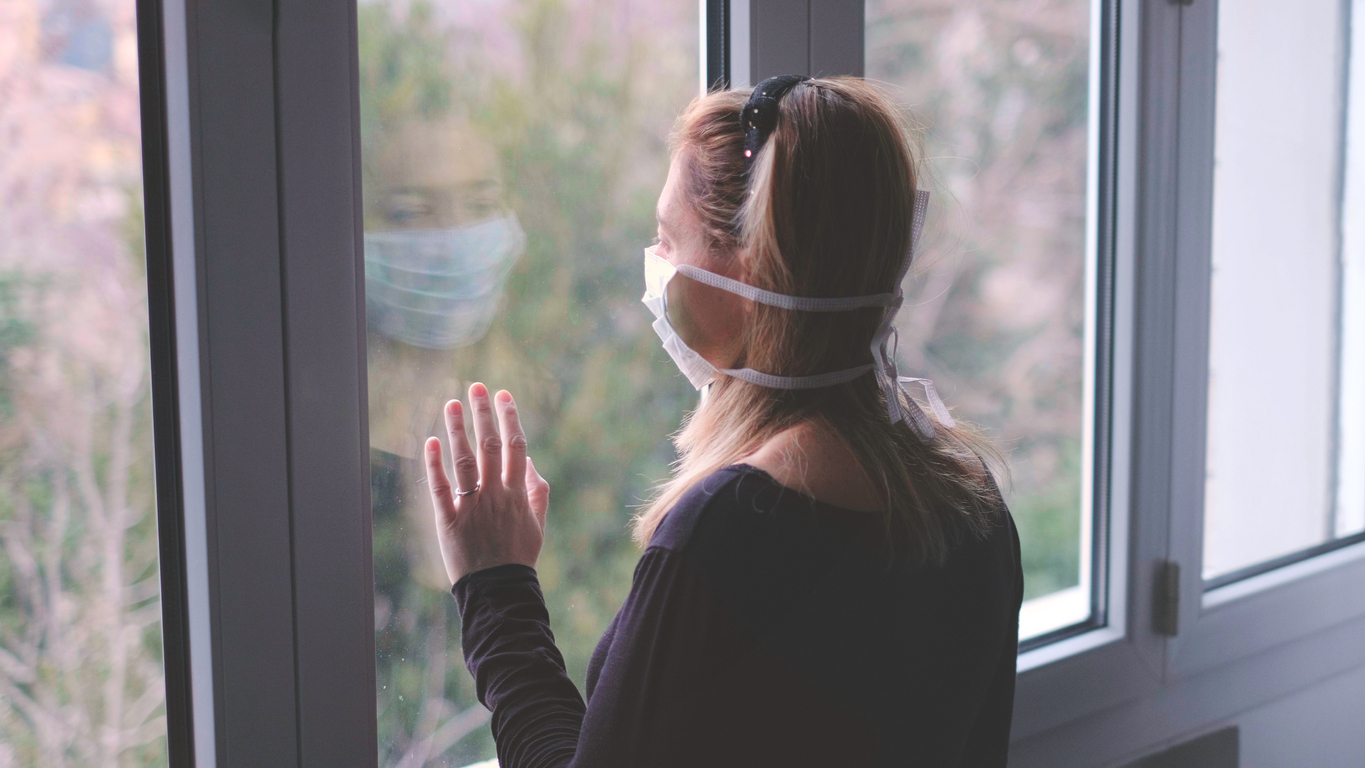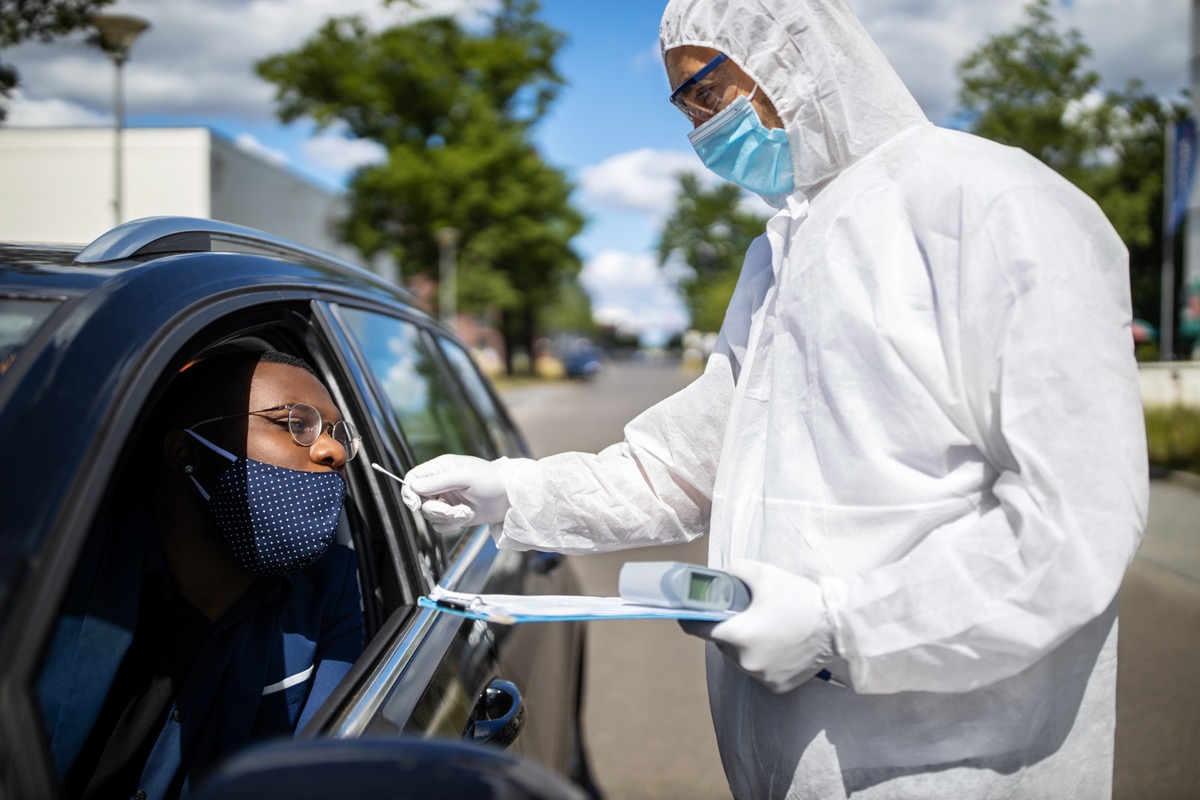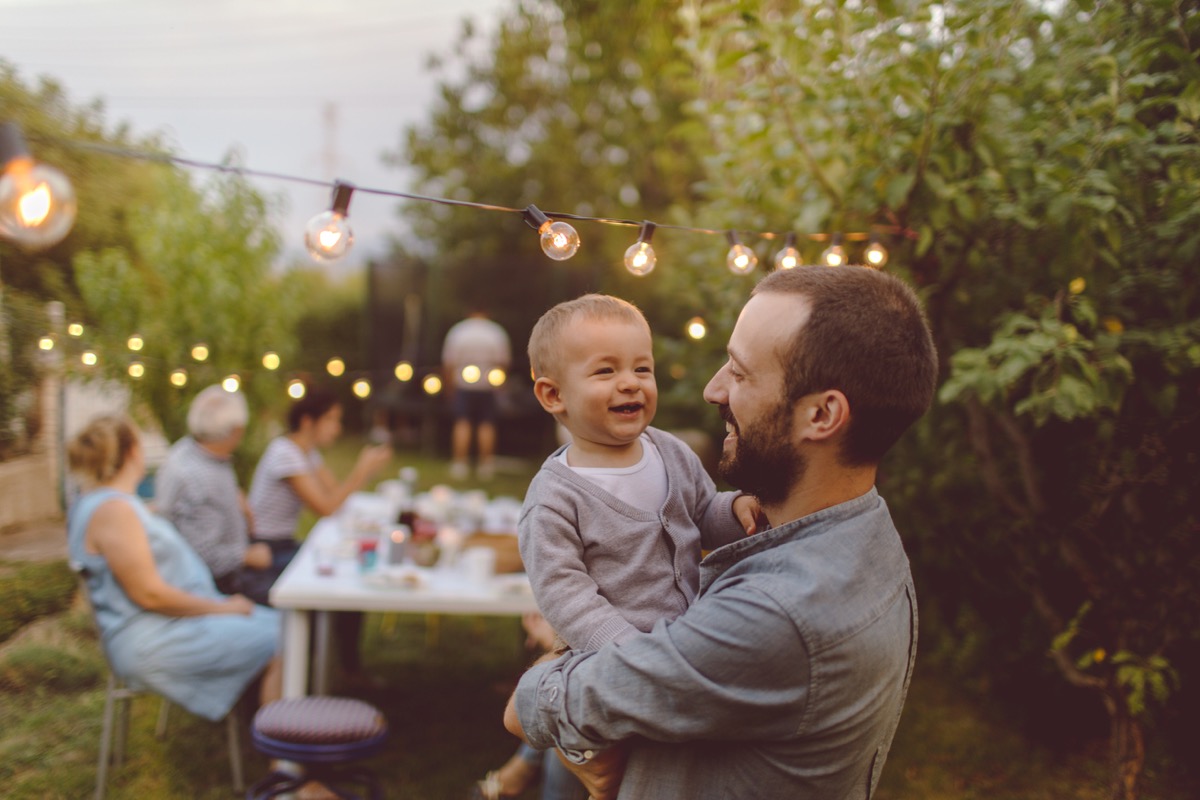According to medical experts, using COVID-19 test results is a dangerous gamble for anyone else you plan on spending Thanksgiving with for one big reason: You simply don’t know if you have coronavirus or not for certain, even with a negative result. In fact, an August study published in the journal Annals of Internal Medicine found that those infected with coronavirus were 100 percent likely to receive a false-negative COVID test result on their first day of infection, with the false-negative rate still at 38 percent by the time patients began showing symptoms. “We know that the incubation period for COVID-19 is up to 14 days. And before that, you can be testing negative, and have no symptoms,” Leana Wen, MD, emergency medicine physician, told CNN. “But you could actually be harboring the virus and be able to transmit it to others.” Angela Rasmussen, PhD, a virologist affiliated with Georgetown Center for Global Health Science and Security, told Reuters that people “should not rely on test results alone to safely socialize in person.” “A test can only tell you if you are positive at a given moment in time, and can also fail to detect cases if you are infected but not yet shedding substantial virus,” she added. Plenty of medical professionals warn that testing creates “a false sense of security,” as Neysa Ernst, MSN, RN, a nurse manager at Johns Hopkins Hospital’s biocontainment unit, told Newsweek. “There’s so much community spread at this point. The numbers are so high that you could be tested today at 10 a.m., go to the grocery store at 10:30 a.m., come in contact with a person who was infected, and by 11:30 a.m., you would be COVID positive.” Still, medical experts are aware that some people will simply be unable to resist getting together with friends and family on the big day. Read on for some of their safety tips, and for an idea as to who might be the most dangerous visitor at your Thanksgiving table, check out This Is When Someone Is Most Likely to Give You COVID. Read the original article on Best Life. This may feel familiar to the early days of the pandemic, but medical experts recommend locking down for a full two weeks before visiting any family members, especially high-risk ones. COVID-19 tests can really only confirm a lack of infection if you’ve been truly in quarantine for 14 days. “If you want to be completely safe that you have not acquired the infection and couldn’t transmit it to another person, 14 days have to go by,” Roy Gulick, MD, chief of infectious diseases at Weill Cornell Medicine and NewYork-Presbyterian, told Newsweek. But in order for this method to truly work, you really need to isolate yourself from exposure to all others. “‘Grocery store’ and ‘quarantine’ don’t belong in the same sentence,” Rochelle Walensky, MD, chief of the infectious diseases division at Massachusetts General Hospital, told CNN. And for more on how hard the pandemic is hitting your area, check out This Is How Bad the COVID Outbreak Is in Your State. If you’re reading this now, you’re already too late to begin a full two-week self-quarantine before Thanksgiving. While experts still caution that it’s not perfectly safe, they say that doing a shorter quarantine before the holiday can be acceptable if you’re able to take a test afterward—and depending on who you’re spending your meal with. “If you are visiting an elderly family member and have a reasonable risk of having been exposed, there is no substitute for 14 days of quarantine,” Justin Lessler, PhD, associate professor of epidemiology at the Johns Hopkins Bloomberg School of Public Health, told CNN. “At the very least I would wait 10 days (of quarantining) and have a negative test.” Lessler adds that if your family members are not high-risk, “then five or seven days (of quarantine) plus a negative test is probably plenty of risk reduction, though no guarantee of safety.” And for more COVID-19 news, sign up for our daily newsletter. While testing for coronavirus isn’t an exact science yet, experts point out that certain types of tests can be more accurate. Molecular tests, such as polymerise chain reaction (PCR) tests—AKA nasal swabs—are typically much more accurate than antigen “rapid” tests. Unfortunately, the trade-off is clear in the name: PCR tests require up to a week to return results, versus antigen tests which take less than an hour. But experts still warn not to rest too heavily on the results you receive—especially on the chance that you simply may not know you’re sick yet. “This mentality of ‘as long as everyone gets tested, they’re safe’ is also a false sense of security,” Ernst told Newsweek. “There’s asymptomatic spread. People don’t even have to know they had the virus. They take their temperature that morning, they’re fine, they go to Thanksgiving gathering and someone else gets infected.” And for the states that are requiring testing these days, beware that You Can’t Enter These 8 States Without a Negative COVID Test.ae0fcc31ae342fd3a1346ebb1f342fcb If your gathering is taking place somewhere that hasn’t seen temperatures dip too low, there may be a slightly safer option for hosting a large meal. According to the CDC, moving your celebration outdoors can help mitigate the risk of spreading the virus by maximizing ventilation. The agency also recommends setting ground rules with attendees before the big day, using plastic utensils and cups for serving, and limiting the number of guests so as to ensure social distancing can be followed. But, as of Nov. 19, the CDC is warning that “the safest way to celebrate Thanksgiving is to celebrate at home with the people you live with. Gatherings with family and friends who do not live with you can increase the chances of getting or spreading COVID-19.” And for more on spots that could be risky, check out 4 Places Dr. Fauci Says He Wouldn’t Go Right Now.



